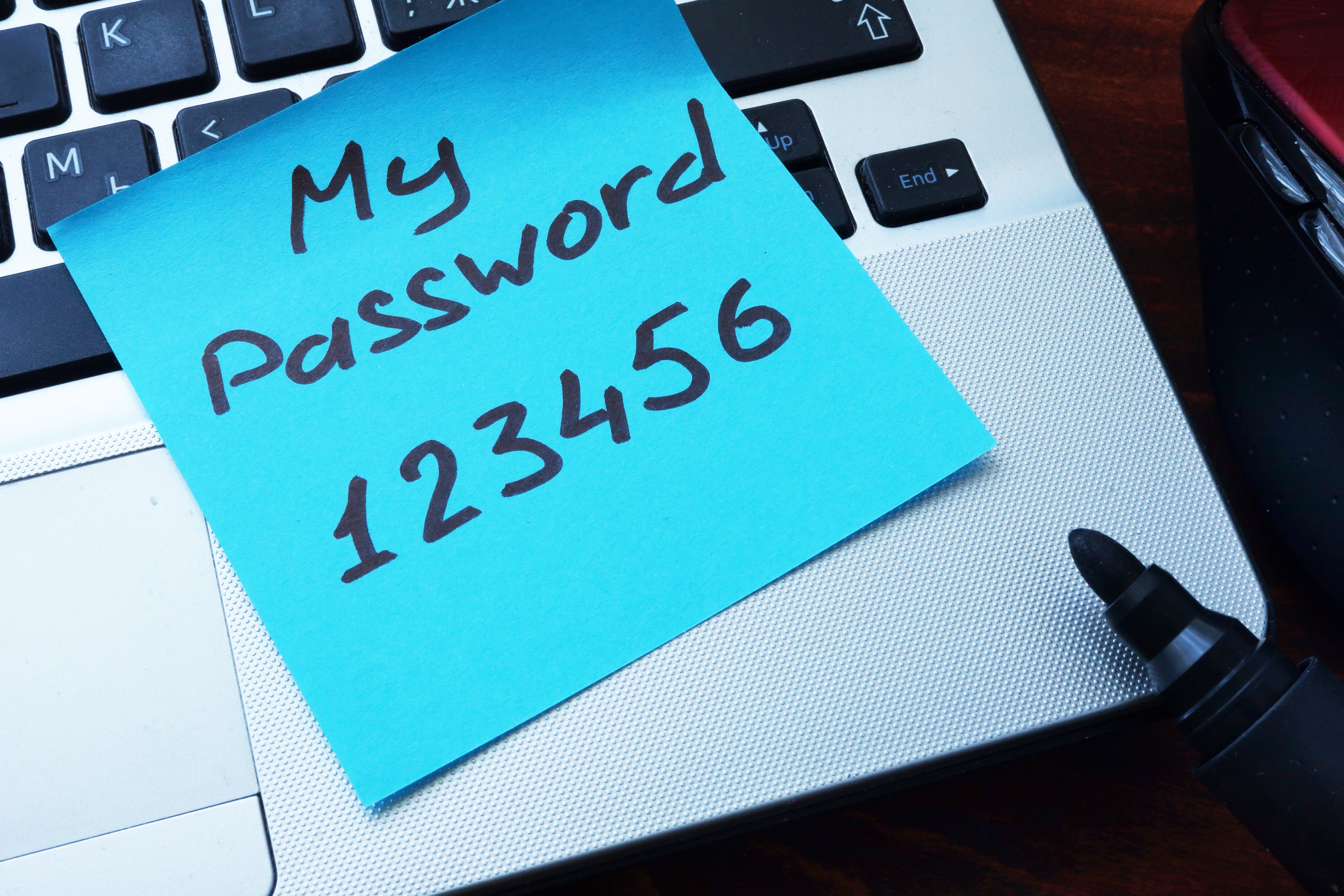 Choosing a weak or commonly used password invites hackers to help themselves to your business’ data. More than 80% of hacks involve a password breach. So while password selection may not be at the cutting edge of cybersecurity, it’s your first line of defense.
Choosing a weak or commonly used password invites hackers to help themselves to your business’ data. More than 80% of hacks involve a password breach. So while password selection may not be at the cutting edge of cybersecurity, it’s your first line of defense.
What are weak passwords?
A weak password is one that is unique to you but crackable by even a low-grade hacker. Using the name of your pet, child, or street might be easy to remember, but it’s also a cinch to guess. A quick check of your social media account or a view of your address, and the hacker has all he needs to unlock your accounts.
Basically, short and simple is a good mantra for creating your tagline, but it’s not the right way to create a password. Pick something long and complicated instead.
What are some of the most common passwords?
Many people use the same words and phrases as passwords. For instance, password and 123456 are popular and easy-to-guess choices. Even making variations on these password patterns, such as password1 or !23456 do little to increase security. Login, admin, qwerty, and (incredibly) hottie round out some top lists of common passwords.
If a password isn’t unique to you, it probably isn’t the best choice. Reused passwords aren’t a good idea either.
How do I check my password’s strength?
Find out how long it would take to crack your password by using an online app like howsecureismypassword.net. This user-friendly site lets you type in your password and then tells you how long it would take a computer to track it. What makes this site helpful is trying different variations before settling on your choice. For instance, the site said it would take two hours to crack a test password, but the addition of a single symbol stretched the estimated time to four weeks.
A password tester is a quick and accurate way to strengthen your choice.
How can I create a good password?
Hard-to-crack password patterns combine letters, numbers, and symbols. And long passwords are safer than short ones. You can also try out uncommon phrases. Remember, the first word that pops into your head is probably one of the first words a hacker will try, too. That’s why Bible verses, birthdays, famous sayings, and ordinary English word strings don’t make good passwords.
A random collection of letters, symbols, and numbers is your best bet.
What are some helpful tips to remember my passwords?
The problem with those super-safe random password patterns is that they’re hard to remember. No one wants to be locked out of their own computer. A password manager like LastPass can store all your passwords for you in a multi-layered encryption safe. By locking all your passwords in a single vault, you have to recall just one master password to get them out. Password managers are a safe, affordable option for many users.

